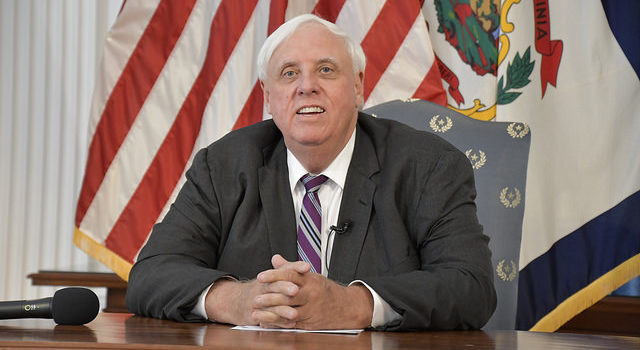CHARLESTON — Gov. Jim Justice, who is looking for money to improve West Virginia roads, said this week he isn’t sure what he’ll do with legislation that would cut steam coal severance taxes over the next few years.
The Legislature passed that bill last Saturday. It cuts the severance tax from 5 percent to 3 percent across three years, and will amount to a $60 million revenue reduction in the third year.
Asked about it during a Wednesday press conference about dedicating more money and effort to secondary road repair across West Virginia, the governor said he hadn’t yet decided what to do.
“That’s a tough question, and really and truly, that really makes a very, very, very difficult situation for me,” Justice said.
He described his loyalty to coal miners and the significant margins by which the severance tax rollback passed in the Senate and House of Delegates. “I don’t want to go in opposition to the vote,” he said.
He also described his own family’s longtime interest in coal. “I know something about it,” he said.
Then Justice referenced back to a policy idea he pushed two years ago, for a tiered severance tax system in West Virginia.
“If we just would have listened to this teeny little guy here,” the governor said, referencing himself, “we would have had tiered severance taxes because that’s what I said on the whiteboards in the first state of the state. Why didn’t somebody report that?
“I, right in the first State of the State said, ‘We need to reward and help our companies if prices are bad, but if prices are good we need to extract something and not become a third world country.’”
He concluded, “To me, it’s a really, really difficult position. I wish we could have gotten through exactly what I said. You know, I’m not the king. I’ve got to listen to our good delegates and our good senators, and I’ve got to listen to our coal miners because we don’t want to lose any coal miners, that’s for dadgum sure.”
Justice took a question about the severance tax cut shortly after describing other ways to find money for West Virginia’s deteriorating secondary roads system.
The governor described gathering about $240 million to shore up local roads through three sources: diverting some from the $915 million in bond money West Virginia has already drawn down for “Roads to Prosperity” projects, using some “pay-as-you-go” revenue that had been intended to pay down future road bond debt and applying portion of state general revenue surplus.
In the front row for that announcement was state Senator Randy Smith, R-Tucker, who spent much of the legislative session describing urgent need for road repair. Smith is also a coal mine safety manager.
Last week, Smith said he did not vote for the severance tax on steam coal because he thought the money is necessary for roads. He had sponsored a bill nicknamed “Randy’s Dream” that aimed to put more money into roads maintenance. At one point, funding for that bill came from severance tax dollars, although that provision was later amended out.
“I voted against the coal severance tax reduction because my bill put 2 percent of the coal severance tax into roads,” Smith said on the final day of the regular legislative session.
“I support coal miners, and I get we need to give them a break because steam coal has really taken a hit and it might save some jobs. But I didn’t want to be hypocritical about it because my bill put 2 percent of the severance tax from coal and 2 percent from gas into that, which would have went a long ways.”




